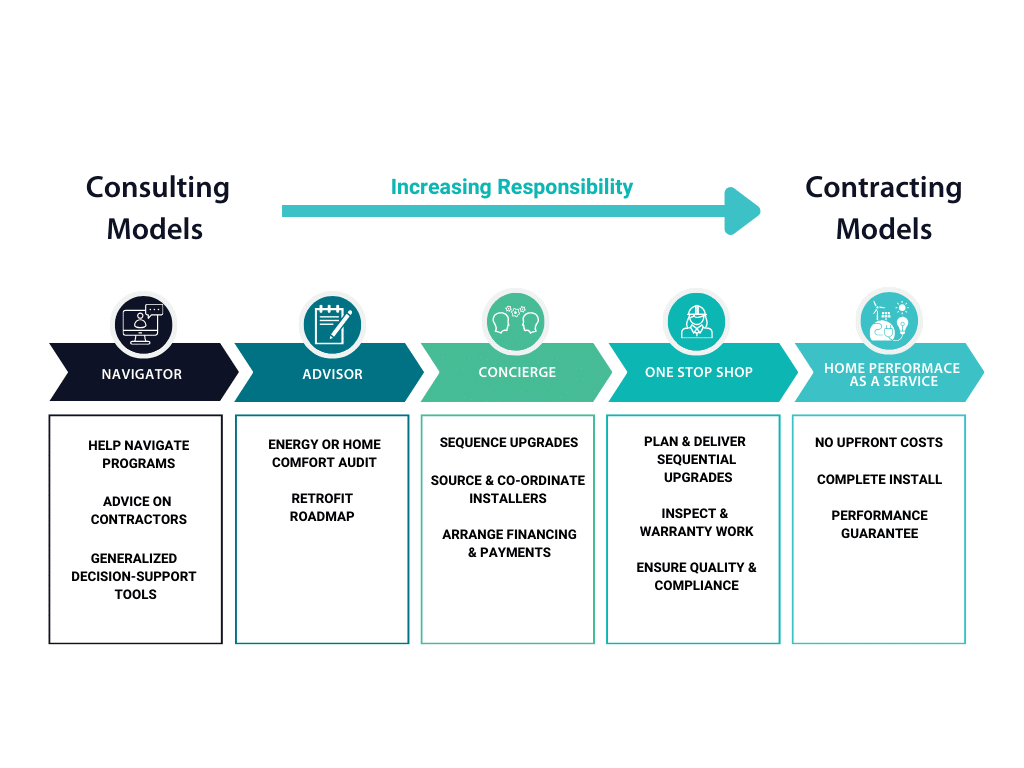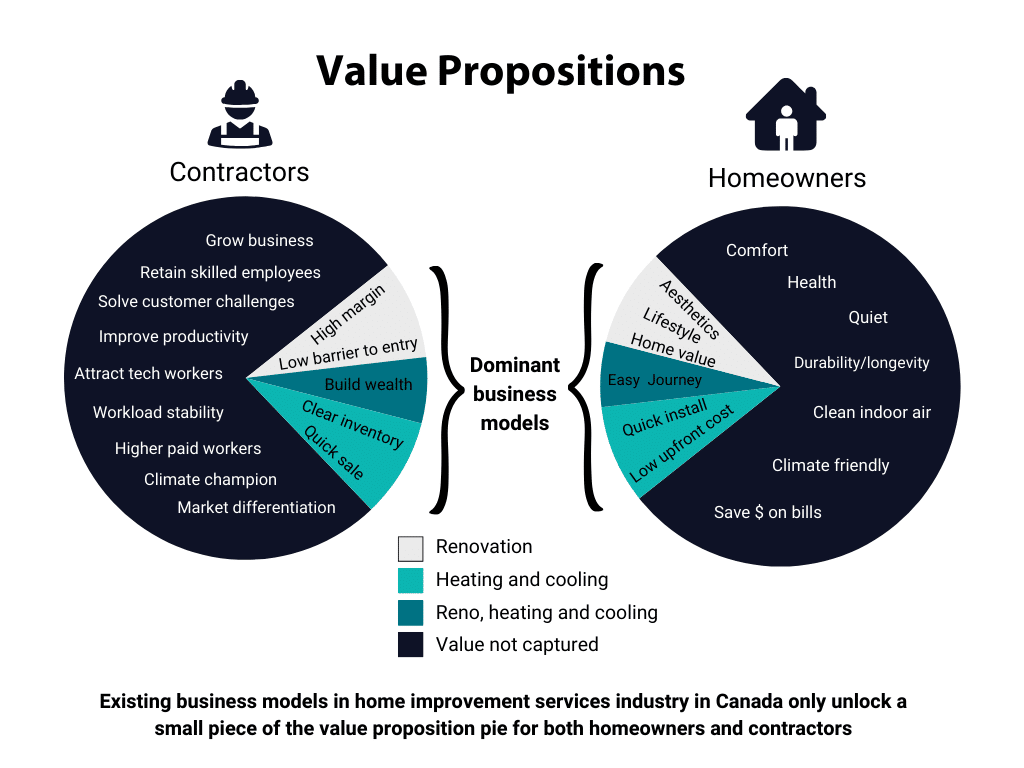REPORT
What Canada Can do to Support Residential Decarbonization: Policy Perspectives From Contractors November 4, 2024REPORT
What Canada Can do to Support Residential Decarbonization: Policy Perspectives From Contractors November 4, 2024About the report
Meeting Canada’s 2050 greenhouse gas emission goals requires significant efforts to decarbonize existing homes. While much of the technology needed to achieve this goal already exists, the market uptake of these technologies, such as heat pumps, insulation and air sealing, has been slow.
A crucial part of solving this puzzle involves people decarbonizing homes by installing heat pumps, upgrading insulation, air sealing homes, etc. Policy initiatives should be more focused on their perspective.
Our discussion paper, Designing Home Retrofit Policy for the People Who Do the Work, looked at designing home energy efficiency and decarbonization policy for the people and businesses doing the work. In that paper, we outlined the critical role of changing business models and what policy can do to facilitate business model changes that meet societal goals for net-zero emissions and create good jobs.
This report proposes policy initiatives that can — from the perspective of contractors themselves — work together to support and empower the home improvement industry to drive retrofits at the scale, pace, and quality needed to achieve Canada’s net-zero goals while achieving the vision of a sustainable and resilient home performance sector.
Authors

Abhilash Kantamneni
Director of Action Research

Carol Mass
Policy Research Associate

Brendan Haley
Sr. Director of Policy Strategy
Key report findings
Rebate-based programs disrupt HVAC business operations by creating boom-and-bust market cycles.
These cycles require rapid adjustments, leading to lower service quality and friction in making sales, despite the short-term business boost these programs provide.
Workforce development requires tailored support beyond technical skills to drive essential operational shifts.
Workforce training should be tailored to business needs, encompassing technical skills, leadership, technology integration, business innovation, and small business management.
Policies like mandatory building energy labelling can boost consumer confidence.
The lack of consumer awareness of the full benefits of whole-home upgrades makes it challenging for value-added businesses to compete against lower-cost, minimal-service contractors.
Additional resources


Join our mailing list
Sign up to receive information on upcoming events, resources, and more.

